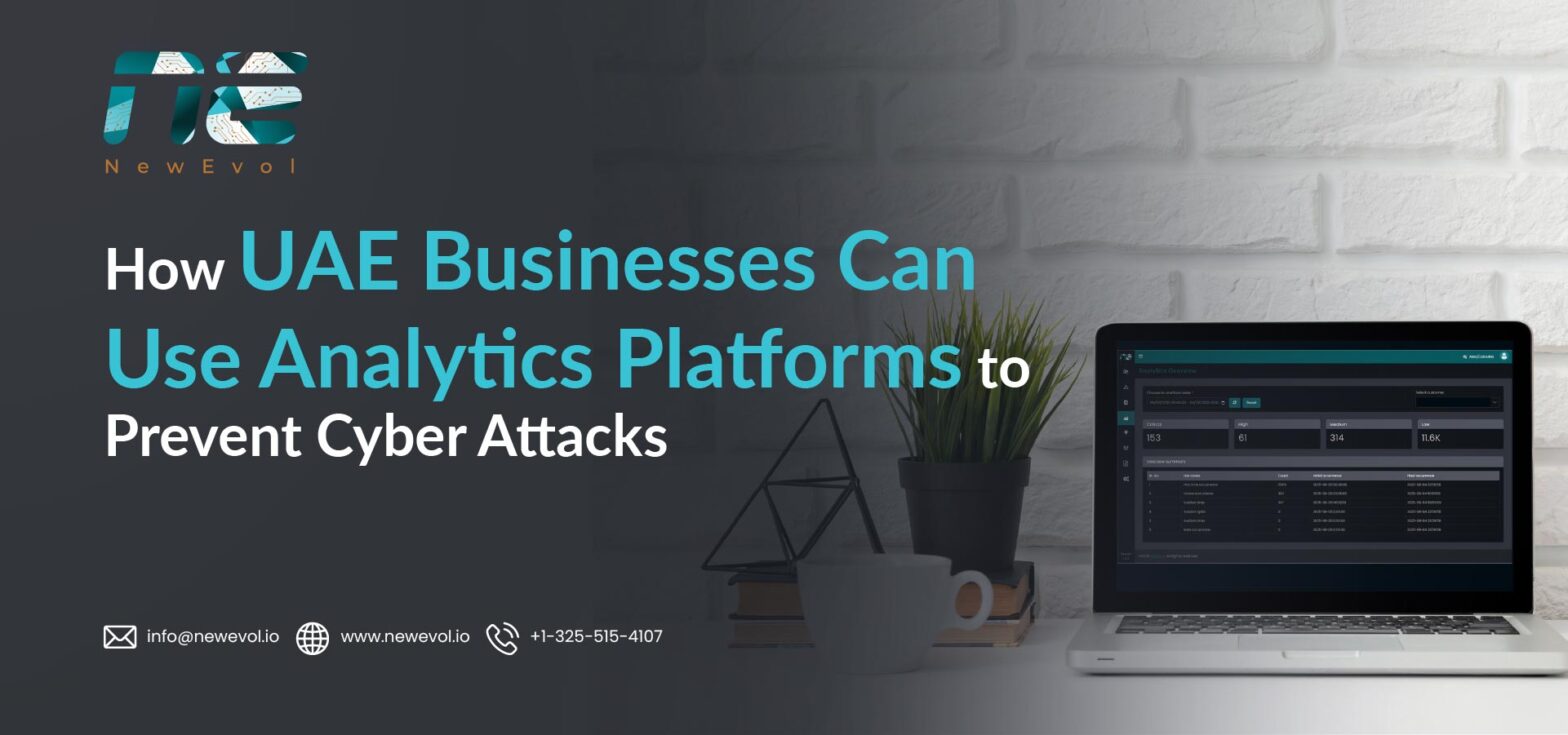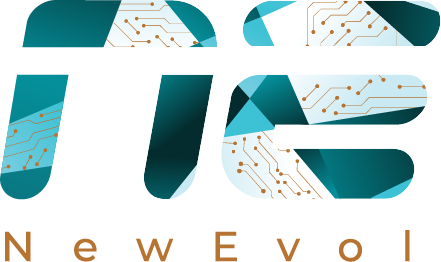How UAE Businesses Can Use Analytics Platforms to Prevent Cyber Attacks

As UAE businesses grow more digital, cyberattacks are becoming more frequent and sophisticated. Hackers are constantly finding new ways to exploit networks, applications, and sensitive data.
This makes it critical for companies to stay one step ahead. One of the most effective ways to do this is by using analytics platforms. These tools collect, analyze, and interpret data from your systems to detect threats early, respond quickly, and even predict potential attacks before they happen. In today’s fast-paced digital world, analytics platforms aren’t just useful — they’re essential for keeping your business secure.
Understanding the UAE Cyber Threat Landscape
As the UAE continues its rapid digital transformation, the nation faces an increasingly complex cyber threat landscape. Businesses across sectors are encountering sophisticated cyberattacks that jeopardize data integrity, financial stability, and national security.
Key Cyber Threats in the UAE
- Ransomware Surge: Ransomware attacks have escalated sharply, with a 32% year-over-year increase in 2024, totaling 34 reported incidents compared to 27 in 2023. These attacks often target critical infrastructure and financial institutions, leading to significant operational disruptions.
- Advanced Persistent Threats (APTs): State-sponsored actors and cybercriminal groups are employing APTs to infiltrate networks, steal sensitive information, and compromise systems over extended periods. These threats are particularly prevalent in sectors such as finance, government, and energy. CPX
- Business Email Compromise (BEC): BEC scams have become more prevalent, with attackers using AI-generated emails and deepfake technologies to impersonate executives, tricking employees into authorizing fraudulent transactions. This poses a significant risk to financial transactions and organizational trust.
- Unverified Mobile Applications: The UAE Cybersecurity Council has issued warnings against the use of unverified mobile applications, highlighting the risks of data breaches and malware infections associated with unauthorized apps. This underscores the importance of secure mobile practices in protecting organizational data. The Times of India
Vulnerabilities and Unaddressed Risks
Despite advancements in cybersecurity, over 223,800 assets within the UAE remain potentially exposed to cyberattacks. Alarmingly, half of these critical vulnerabilities have remained unaddressed for over five years, leaving systems susceptible to exploitation. WAM
Regulatory Landscape and Strategic Response
In response to these escalating threats, the UAE has implemented the National Cybersecurity Strategy, aiming to create a secure digital environment that supports business growth and innovation. This strategy emphasizes the need for continuous threat monitoring, prioritization of critical cybersecurity trends, and the cultivation of a robust security culture within organizations. ADGM Assets
The Role of Analytics Platforms in Cybersecurity
Analytics platforms play a critical role in helping UAE businesses stay ahead of cyber threats. These platforms collect and analyze vast amounts of data from networks, applications, and endpoints, turning raw information into actionable insights.
Core Capabilities:
- Threat Detection: Advanced analytics, powered by AI and machine learning, can identify unusual patterns and anomalies that may indicate an attack.
- Incident Response: Automation allows businesses to respond quickly to detected threats, reducing potential damage and downtime.
- Predictive Analysis: Analytics platforms can forecast potential vulnerabilities and attack vectors based on historical and real-time data, enabling proactive defense.
Benefits for UAE Businesses:
- Enhanced Detection Rates: Sophisticated threats that traditional tools might miss are identified more reliably.
- Reduced Response Times: Faster detection and automated responses limit the impact of attacks.
- Cost Efficiency: By preventing breaches, businesses save on recovery costs and avoid reputational damage.
Implementing Analytics Platforms: Best Practices for UAE Businesses
Successfully using analytics platforms requires careful planning and execution. Here are best practices for UAE businesses to get the most out of these tools:
- Integrate with Existing Systems: Ensure the analytics platform works seamlessly with your current IT infrastructure, including networks, applications, and endpoints.
- Employee Training: Educate staff on how the platform works, what alerts mean, and how to respond to potential threats.
- Continuous Monitoring: Establish 24/7 monitoring to detect and respond to threats in real-time, minimizing risk.
- Regular Updates and Maintenance: Keep the platform updated to address emerging vulnerabilities and take advantage of new security features.
- Collaborate with Cybersecurity Experts: Partner with experienced cybersecurity firms for guidance on configuration, threat analysis, and response strategies.
- Data Privacy Compliance: Ensure the platform and processes comply with UAE data protection regulations, such as the Data Protection Law 2021, to maintain legal and ethical standards.
Challenges and Considerations
While analytics platforms offer significant cybersecurity benefits, UAE businesses must be aware of potential challenges and plan accordingly:
- Data Privacy Concerns: Collecting and analyzing large volumes of data may raise privacy issues. Organizations must ensure compliance with UAE data protection laws.
- Integration Complexities: Integrating analytics platforms with legacy systems and multiple IT environments can be technically challenging.
- Resource Allocation: Implementing and maintaining these platforms requires investment in skilled personnel, technology, and ongoing support.
- Regulatory Compliance: Ensuring the platform and processes meet local and international cybersecurity standards is essential to avoid penalties.
- Alert Fatigue: Without proper tuning, excessive alerts can overwhelm security teams, reducing the effectiveness of threat detection.
- Keeping Up With Emerging Threats: Cyber threats evolve rapidly, requiring continuous updates and adjustments to analytics strategies.
How NewEvol Helps UAE Businesses Strengthen Cybersecurity
NewEvol provides advanced analytics solutions designed to help UAE organizations prevent cyberattacks effectively:
- Real-Time Threat Detection: NewEvol’s analytics platforms continuously monitor networks and systems, identifying anomalies before they turn into security incidents.
- Predictive Analytics: Using AI-driven insights, NewEvol forecasts potential vulnerabilities and attack patterns, allowing businesses to act proactively.
- Automated Response & Integration: The platform can trigger automated responses and integrates seamlessly with existing IT and security systems, ensuring faster mitigation of threats.
- Compliance Support: NewEvol helps organizations align with UAE cybersecurity regulations, reducing compliance risks and safeguarding sensitive data.
- Scalable Solutions: Whether for SMEs or large enterprises, NewEvol’s analytics tools are scalable, supporting growing data volumes without compromising security.
Final Thoughts
Analytics platforms are becoming essential tools for UAE businesses to stay ahead of cyber threats. By collecting, analyzing, and interpreting data in real time, these platforms enable proactive threat detection, faster incident response, and predictive insights into potential vulnerabilities.
While implementation comes with challenges like data privacy, integration, and resource allocation, following best practices ensures maximum effectiveness. By leveraging analytics platforms strategically, UAE organizations can protect sensitive data, maintain operational continuity, and strengthen their overall cybersecurity posture in an increasingly digital and connected environment.
FAQs
-
What is the UAE cyber security strategy?
The UAE Cybersecurity Strategy is a national initiative to create a secure digital environment, emphasizing threat monitoring, regulatory compliance, and resilient business operations.
-
What is a framework to prevent cybercrime in the UAE?
Frameworks include regulatory guidelines, best practices for IT security, and the adoption of analytics platforms to detect, respond to, and prevent cyberattacks.
-
What is the role of the UAE in raising awareness against cyber attacks?
The UAE government and councils conduct awareness programs, issue guidelines, and encourage businesses to adopt proactive cybersecurity measures.
-
What is the platform of cybercrime in UAE?
Analytics and cybersecurity platforms help businesses monitor, analyze, and respond to cyber threats, acting as a central hub for cyber defense and threat intelligence.

